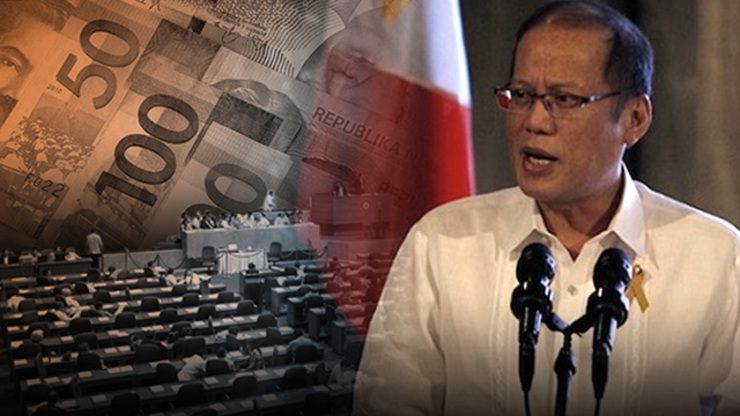SUMMARY
This is AI generated summarization, which may have errors. For context, always refer to the full article.

MANILA, Philippines – Following the Supreme Court’s decision that portions of the Disbursement Acceleration Program (DAP) were unconstitutional, Malacañang is under fire for what critics say was the Aquino administration’s illegal realignment of savings.
DAP is a program initiated in 2011 by President Benigno Aquino III to boost the economy by transferring unused funds in slow-disbursing projects to fast-disbursing ones. (READ: TIMELINE: The rise and fall of DAP)
The transfer of funds from projects, programs, and activities under the executive branch to projects of another branch was declared unconstitutional by the High Court. The President can only transfer savings within the executive branch itself, the SC ruled.
The creation of savings contrary to the definition of the General Appropriations Act (GAA) was also declared void. Savings as defined by the GAA include funds from abandoned projects, uncompleted projects and vacancies in government.
The SC ruled that a lump sum cannot be declared as savings mid-year as the project from which the funds were taken cannot be identified categorically as abandoned or unfinished.
Calls asking for the resignation of Budget Secretary Butch Abad have increased, as well as whispers about the impeachment of President Benigno Aquino III. The Ombudsman, meanwhile, is set to launch an investigation into DAP offenses.
Malacañang however remains firm in its defense of DAP. Here are 5 arguments the Palace has used to stand by the program.
‘We differed only in interpretation’
Malacañang emphasized that the Supreme Court agreed with the administration that Aquino has the authority as Chief Executive to implement DAP “as a stimulus program to achieve economic growth and as an administrative system of prioritizing spending in the execution of the national budget.”
However, it stands by the schemes used to accelerate projects, insisting it acted in good faith.
“It is in the interpretation of the Constitution and applicable laws on the fine details of budget execution that the views of the executive and the Supreme Court diverged,” Communications Secretary Sonny Coloma said.
‘DAP was beneficial’
The administration has consistently hailed the benefits brought about by DAP, and pointed out that the SC itself acknowledged DAP has yielded positive results.
Coloma quoted the SC decision that said, “To count the positive results may be impossible but the visible ones, like public infrastructure, could easily include roads, bridges, homes for the homeless, hospitals, classrooms and the like. Not to apply the doctrine of operative fact to the DAP could literally cause the physical undoing of such worthy results by destruction and would result in most undesirable wastefulness.”
It also said DAP was credited for spurring economic growth.
‘We exercised due dilligence’
Malacañang insisted it cannot be faulted because the funds were used for good, adding it “exercised due dilligence.”
“We have exercised due diligence in implementing the various programs, activities, and projects included in the DAP and we are abiding by and complying with all the legal processes, which also include pertinent auditing rules and procedures,” Coloma said.
He said the administration is open to any audit and said that if in auditing, it finds that there were irregularities, those responsible would be held liable.
‘We acted in good faith’
Aside from due dilligence, Coloma insists “the executive branch exercised good faith,” and “have been abiding by and complying with such lawful processes,”
Because of this, he said the Aquino government is not ruling out a motion for reconsideration with the SC. “We will review the decision further to gain a more comprehensive understanding of its ramifications and study the appropriate legal options,” Coloma said.
‘We did nothing wrong’
Malacañang has said it does not regret implementing DAP. It also has no plans to apologize to taxpayers.
“Of course if you say sorry, it’s because you did something wrong. We have not done anything wrong regarding this,” said Coloma.
So will someone be held liable for the unconstitutional sections of DAP? The administration conceded “it would be part of the lawful processes to determine accountability.”
He also defended Abad, and pointed instead to Aquino as the ultimate decision maker, saying “the President is the Chief Executive and the members of the Cabinet performed the role of alter-ego and whatever role that they perform is only an extension of the personality of the President himself.” – with a report from Buena Bernal/Rappler.com
Add a comment
How does this make you feel?
There are no comments yet. Add your comment to start the conversation.